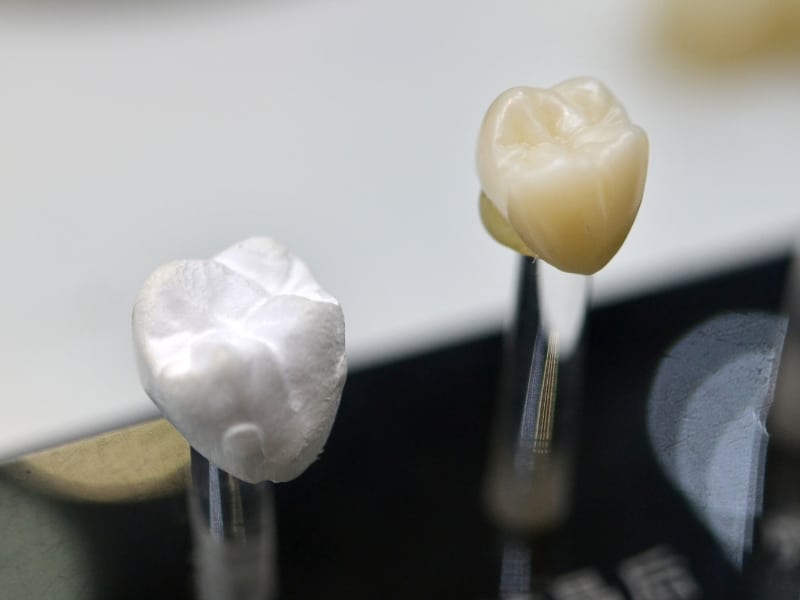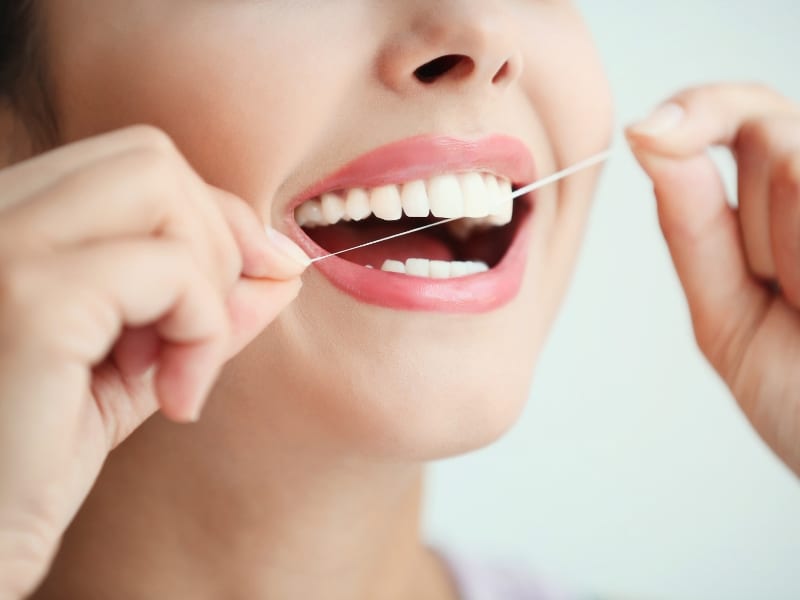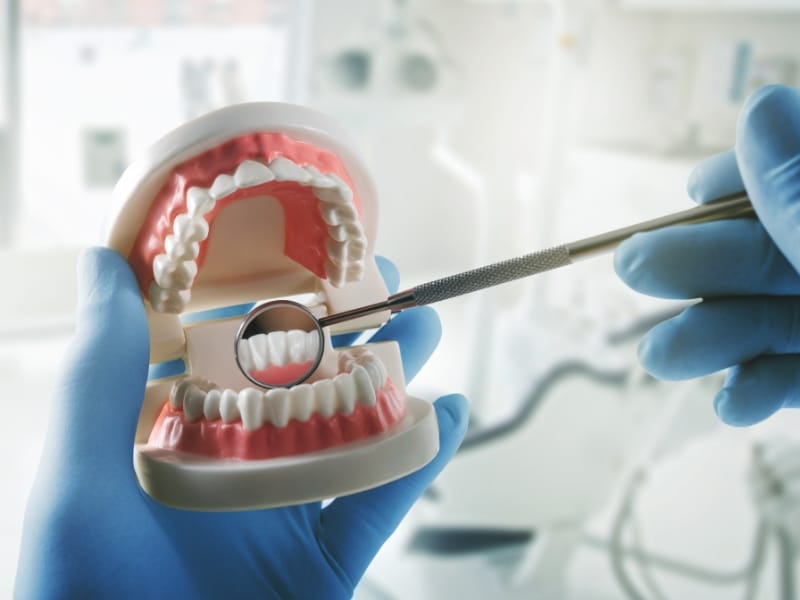Maintaining your dental crowns isn’t just about keeping your smile bright — it’s about protecting your long-term oral health. While dental crowns are designed to be durable, poor oral hygiene can dramatically shorten their lifespan. Every day habits, lifestyle choices, and inconsistent care often lead to complications that require costly replacements. To maximise the benefits of your investment, it is essential to understand how daily habits impact your crowns. This article explores the relationship between oral hygiene and dental crown longevity.
What common problems reduce dental crown longevity?
Even well-made dental crowns can face premature wear if certain problems arise. Ignoring these issues can compromise the integrity of your crown and lead to more extensive dental work.
- Decay around the crown margin can develop if plaque is not removed effectively, allowing bacteria to infiltrate the tooth structure beneath the crown and cause decay or infection.
- Gum disease weakens the foundation supporting your crown, resulting in gum recession and instability of both the crown and surrounding teeth, ultimately reducing dental crown longevity.
- Bruxism (teeth grinding) exerts excessive pressure that may cause fractures or loosening of the crown, particularly during nighttime grinding when the forces on teeth are strongest.
- Improper bite alignment creates uneven forces, leading to loosening or cracking of the crown over time, especially when chewing harder foods.
If you experience any of these problems, seeking prompt dental advice is crucial. For example, many underestimate the potential problems caused by loose dental crowns, which can allow bacteria to enter and cause decay beneath the crown. Addressing such concerns early helps preserve both the crown and the tooth underneath.
How do bad habits shorten the life of a dental crown?
Certain daily behaviours can significantly reduce the lifespan of your dental crown. Recognising and adjusting these habits is essential to maintain your oral health.
- Using teeth as tools (to open bottles or tear packaging) stresses the crown structure beyond what it is designed to handle, often leading to chips, fractures or dislodgement.
- Chewing hard foods like ice, nuts, or hard lollies increases the risk of cracks and breakage, particularly for older crowns that may already have microfractures.
- Skipping flossing allows plaque buildup along the gumline and around the edges of the crown, increasing the risk of decay on the underlying tooth and gum inflammation.
- Consuming excessive sugary drinks promotes decay around crown edges by encouraging bacterial growth, especially when combined with poor brushing habits.
Over time, these habits can result in structural damage and gum inflammation. Combined with poor oral hygiene, they can create a cycle of deterioration. It’s wise to replace risky habits with healthier ones to ensure your crown lasts as long as possible.

Why does inconsistent dental care reduce the lifespan of crowns?
Neglecting regular care can accelerate the wear and tear on dental crowns. While crowns themselves cannot decay, the tooth and gum around them remain vulnerable.
- Irregular brushing leaves behind food particles and plaque that encourage bacterial growth, which can compromise the health of the tooth supporting the crown.
- Infrequent dental checkups can delay the identification of small problems, such as early signs of decay or gum disease, which could be corrected before they progress.
- Ignoring early signs of gum disease allows infection to spread unnoticed, weakening the tissue and bone that provide essential support for your crown.
- Failing to follow care instructions compromises the crown’s stability and longevity, as small issues that could be easily fixed may develop into more serious problems.
Moreover, many people postpone addressing damage to their crowns. The risks of delaying treatment for damaged teeth include not only crown failure but also more serious complications such as root infections. Proactive care is key to avoiding these outcomes and protecting your dental investment.
What effective oral hygiene habits protect dental crowns?
Practising excellent oral hygiene daily is your best defence against premature crown failure. Consistency is crucial — the following habits make a significant difference:
- Brush twice daily with a soft-bristled toothbrush and fluoride toothpaste to remove plaque and food debris, while also strengthening the enamel of natural teeth near your crown.
- Use an antibacterial mouthwash to reduce harmful bacteria in the mouth and help protect the gum tissue that supports your crowns.
- Attend professional cleanings every six months for thorough plaque removal, ensuring that dental professionals can monitor both your crowns and the supporting structures.
- Floss daily to clean areas your brush can’t reach, particularly around the crown edges and between adjacent teeth, where plaque tends to accumulate unnoticed.

Along with these habits, it’s worthwhile to explore trusted dental solutions for lasting dental crown longevity if you want to protect your crowns further and maintain a healthy smile. Tailored treatments and professional advice can help you get the best long-term results from your dental care.
How can you maintain crown strength through oral care?
Beyond basic hygiene, adopting targeted practices can further extend the life of your crowns. These strategies address both crown maintenance and overall oral health:
- Wear a nightguard if you grind your teeth while sleeping, as this protects your crowns from excessive force and prevents microfractures caused by bruxism.
- Limit acidic and sugary foods that promote plaque development and tooth erosion, which can weaken the underlying tooth structure and surrounding gums.
- Rinse with water after meals to help neutralise acids, wash away food particles, and maintain a healthier pH balance that discourages bacterial growth.
- Replace your toothbrush regularly (every 3–4 months or sooner if worn) to ensure effective cleaning and prevent the spread of bacteria back into your mouth.
Importantly, these steps also contribute to how oral hygiene supports long-term dental health, safeguarding not only your crowns but also the natural teeth and gums that surround them. A strong oral care routine protects your entire smile over time.
When should you replace an old dental crown?
Even with optimal care, no dental crown lasts forever. Recognising when a replacement is necessary can prevent more serious dental issues and help maintain dental crown longevity for the rest of your smile.
| Signs | Why It Matters |
| Visible cracks or chips | Weakens the crown structure and exposes the underlying tooth to potential damage |
| Recurrent sensitivity or pain | May indicate underlying decay, compromised fit, or infection that needs urgent treatment |
| Gum recession around the crown | Exposes the tooth to bacteria and weakens the seal of the crown against the gumline |
| Loosening or movement of the crown | Increases the risk of damage to both the crown and underlying tooth, and can allow bacteria entry |
Ignoring these signs can lead to avoidable dental procedures. If you observe any of these symptoms, consult your dentist. Replacing an ageing crown promptly protects your oral health and prevents complications.
Final thoughts
Oral hygiene has a profound impact on the longevity of dental crowns. By embracing consistent care and avoiding damaging habits, you can extend the life of your crowns and maintain a healthier smile. If you’re unsure about your current dental care routine or need personalised advice, you can always connect with the team at Marsfield Dental Care to discuss your dental needs.

